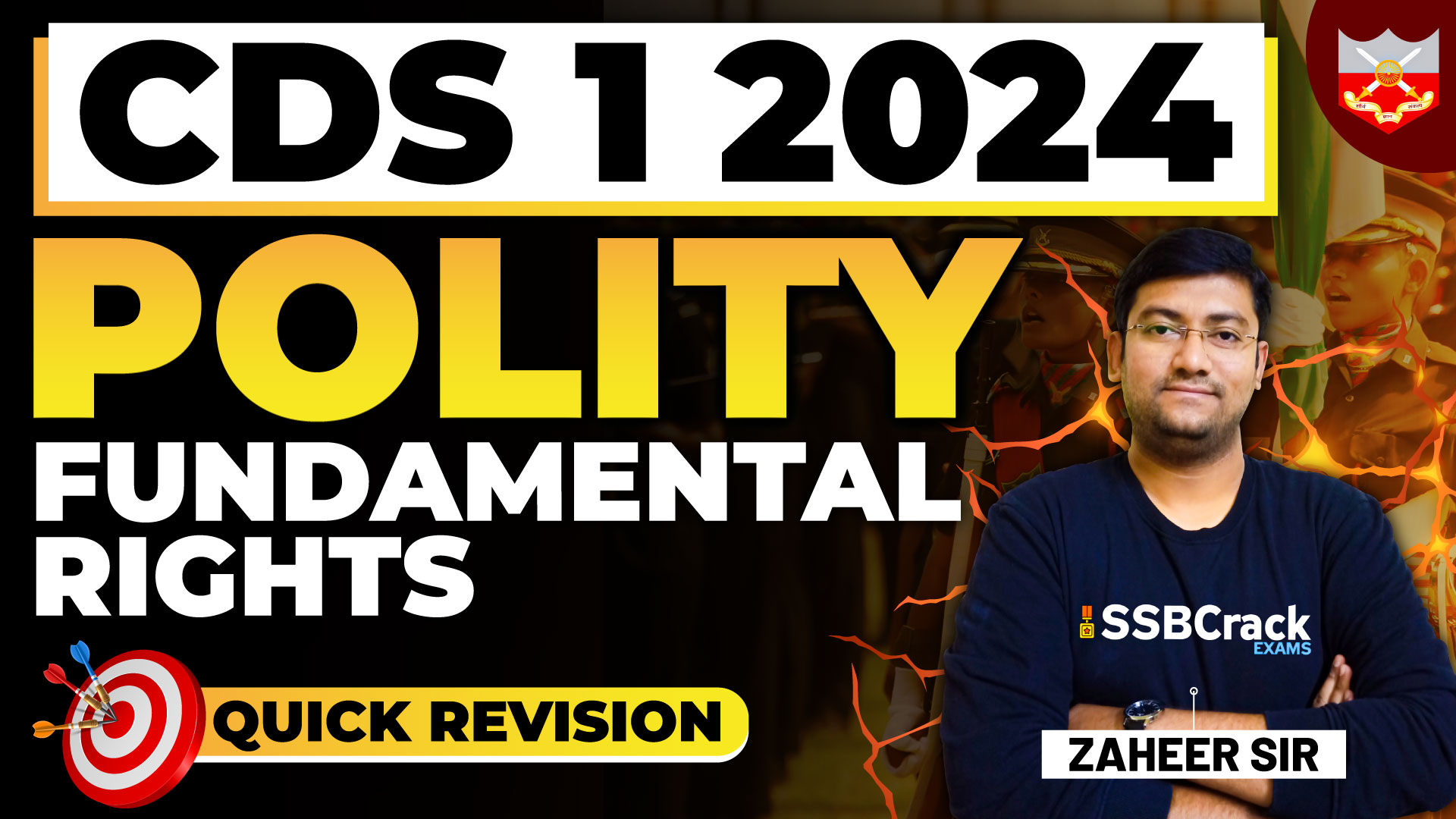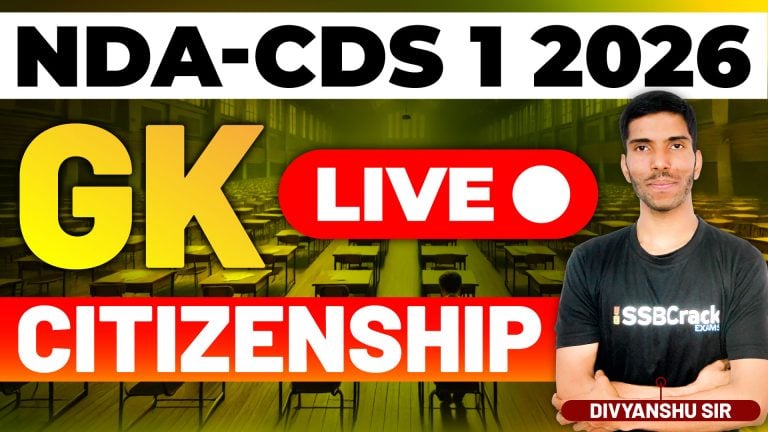Aspiring candidates preparing for the Combined Defence Services (CDS) examination in 2024 undoubtedly comprehend the significance of various subjects in their syllabus. However, amidst the array of topics, one crucial area stands out – Fundamental Rights. This segment of Indian Polity holds immense importance not only in the context of the examination but also in shaping one’s understanding of democratic principles and citizen empowerment.
Fundamental Rights, enshrined in Part III of the Indian Constitution, form the bedrock of democratic governance in India. They bestow upon every citizen a set of essential freedoms and safeguards, ensuring equality, justice, and dignity for all. From the right to equality, freedom of speech and expression, right to life and personal liberty, to the right to constitutional remedies, each provision holds immense significance in upholding the democratic fabric of the nation.
Understanding these rights goes beyond mere academic knowledge. It equips individuals, especially those aspiring to serve the nation through the armed forces, with a profound understanding of the values they are committed to defend. For a CDS aspirant, familiarity with Fundamental Rights is indispensable as it not only enriches their comprehension of the constitutional framework but also cultivates a sense of responsibility towards safeguarding the rights of fellow citizens.
Moreover, a comprehensive grasp of Fundamental Rights is imperative for effective decision-making in various scenarios that defence personnel might encounter. Whether it’s ensuring civilian rights during internal security operations or upholding human rights standards in conflict zones, an understanding of constitutional principles guides their actions towards upholding justice and integrity.
Furthermore, in the contemporary landscape where issues related to citizenship, privacy, and individual liberties often dominate public discourse, a nuanced understanding of Fundamental Rights becomes even more pertinent. It enables individuals to critically analyze legal and policy developments, contributing meaningfully to debates on civil liberties and societal progress.
For CDS aspirants specifically, excelling in the examination demands more than rote memorization; it necessitates a deep understanding of the values and principles that define the nation they aim to serve. A class dedicated to Fundamental Rights provides them with the necessary tools to navigate complex legal and ethical dilemmas, thereby enhancing their leadership potential and decision-making skills.
Beyond the realm of examinations and military service, an appreciation of Fundamental Rights fosters active citizenship. It empowers individuals to advocate for justice, equality, and democratic ideals in their communities and beyond. In essence, this class serves not only as a preparatory step for an examination but also as a foundation for lifelong engagement with the principles of democracy and citizenship.
In conclusion, the significance of the Indian Polity class focusing on Fundamental Rights for CDS 1 2024 cannot be overstated. It is not merely a subject to be studied for academic purposes but a vital component in shaping individuals who are not only well-prepared for their roles in defence services but also deeply committed to upholding the democratic ethos of the nation. Through this class, aspirants are not just learning about rights; they are imbuing themselves with the values that underpin the very essence of a democratic society.







